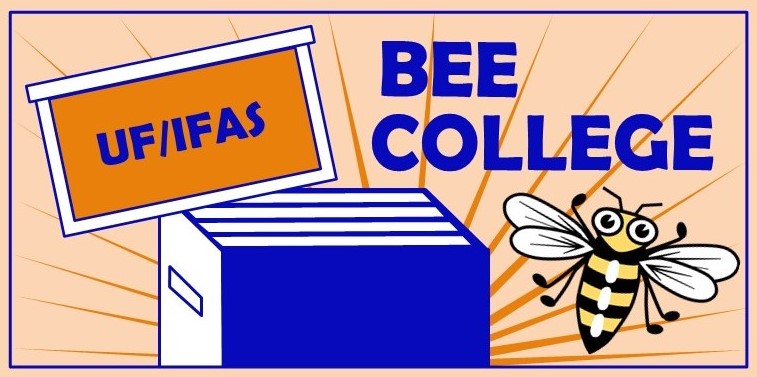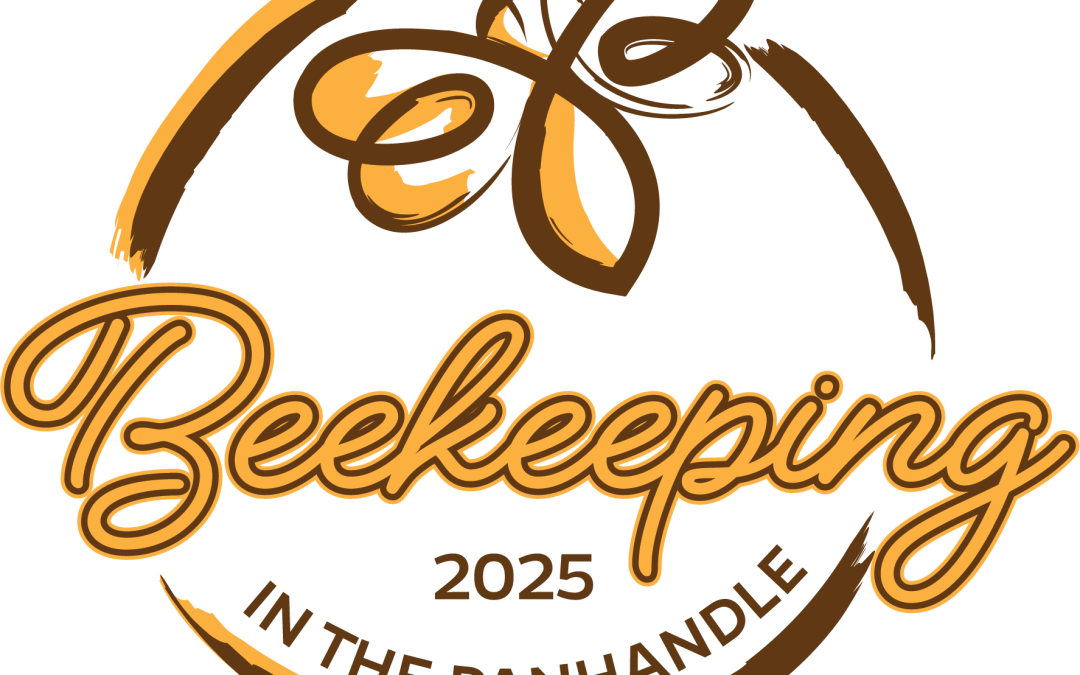
by Julie McConnell | Mar 6, 2025
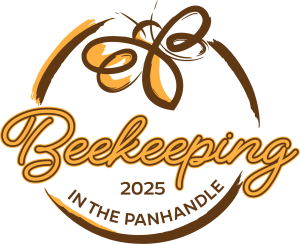
Are you an experienced beekeeper looking to expand your education?
Are you a new beekeeper or maybe just considering jumping into honey bees?
Do you want to see hands-on demonstrations with live honey bees?
If you can answer yes to of the questions above, you don’t want to miss the 2025 Beekeeping in the Panhandle Conference April 4-5, 2025, at the Washington County Agriculture Center (1424 Jackson Ave, Chipley, FL 32428)!
UF/IFAS Extension Washington County and the Central Panhandle Beekeepers Association have lined up some top-notch speakers and will ensure there are educational opportunities for all skill levels at this two-day event. Speakers will be joining us from the UF/IFAS Honey Bee Research and Extension Lab, Florida Department of Agriculture and Consumer Services, and beekeepers with experience managing honey bees in this region.
Sample Topics include:
- Honey Bee Biology
- Hive Components
- Top Tips for Beekeepers
- Making Splits
- Integrated Pest Management in a Honey Bee Colony
- Seasonal Efficacy of Varroa Treatments
- What you Need to Know About the Yellow-legged Hornet (Vespa velutina)
- Pesticide Risk Assessment in Honey Bees
- Pollinator Plants
- Product Making Demonstrations
- Apiary Demonstrations
Early bird registration is open through 4:59 p.m. on March 17, 2025, so get your tickets now for the best value!
The University of Florida is committed to providing universal access to all of our events. To arrange disability accommodations, please contact Julie McConnell (juliebmcconnell@ufl.edu ) or call 850-638-6180 at least 2 weeks in advance. We are proud to be an Equal Opportunity Institution.
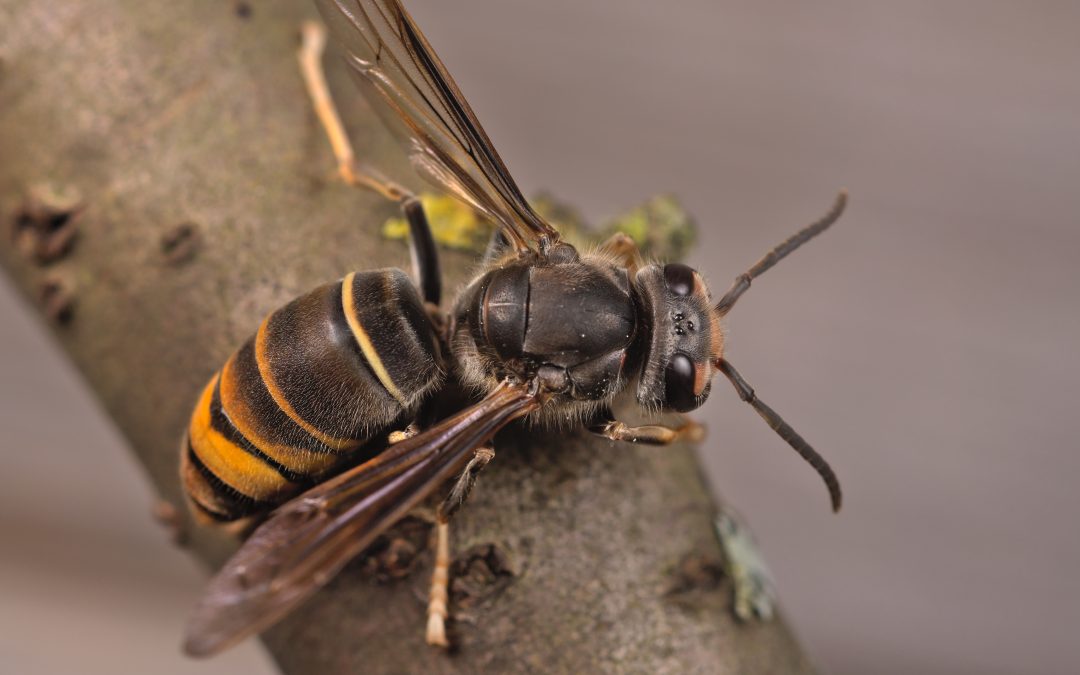
by Molly Jameson | Apr 25, 2024
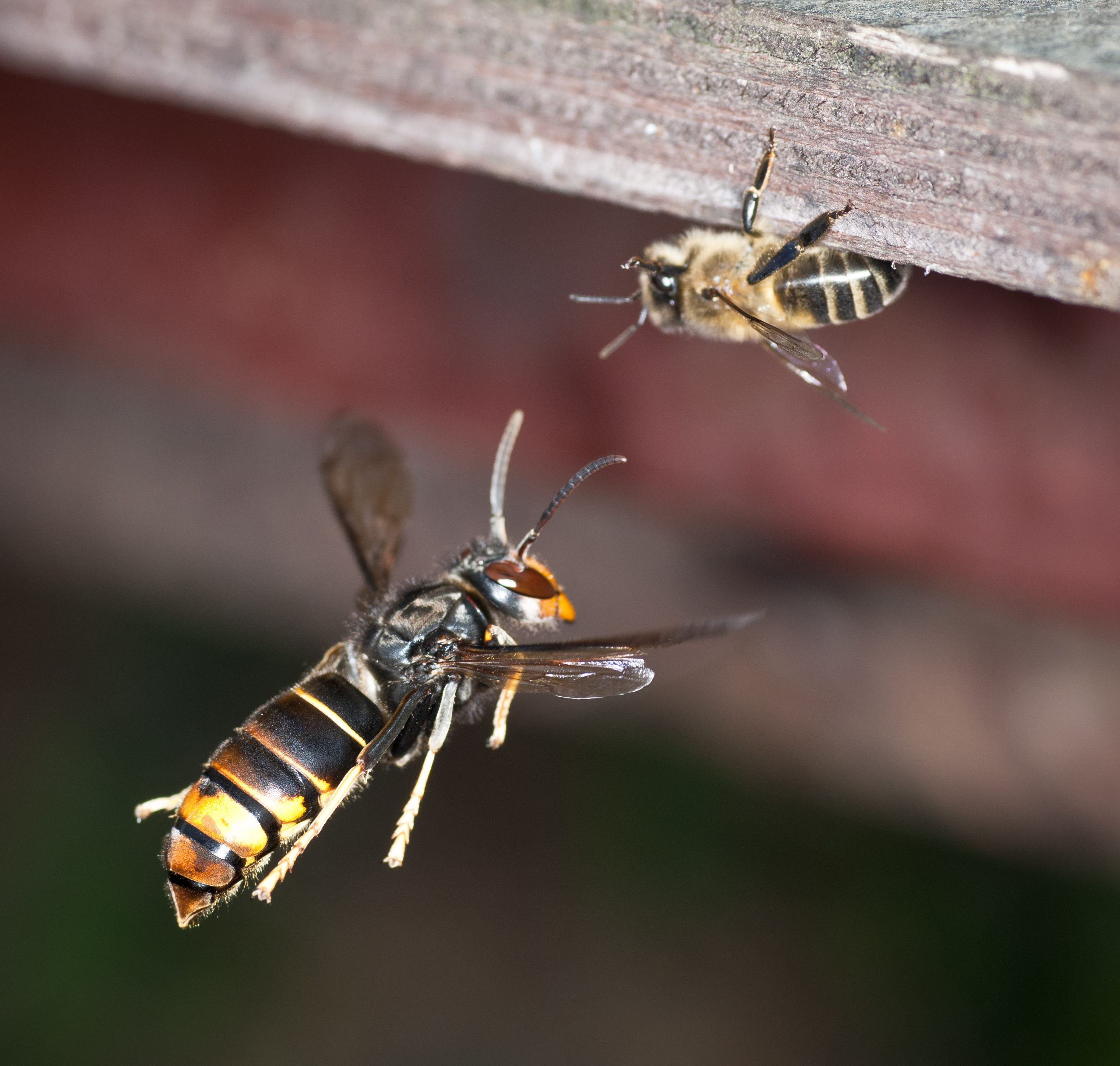
Florida beekeepers are on high alert as the invasive Vespa velutina hornet poses a threat to honey bees, prompting vigilant monitoring to safeguard against potential impacts. Photo by Danel Solabarrieta, licensed under CC BY-SA 2.0.
A concerning discovery has emerged in Savannah, Georgia, regarding the yellow-legged hornet, commonly known as the “murder hornet’s cousin.” Officially identified as Vespa velutina by the Georgia Department of Agriculture in August 2023, it was first encountered by a beekeeper in the area.
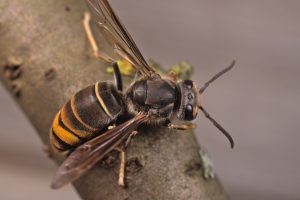
The size of a nickel, Vespa velutina has distinctive black and yellow coloring with yellow/white legs. Photo by Gilles San Martin, licensed under CC BY-SA 2.0.
Although distinctive from the infamous “murder hornet,” the yellow-legged hornet, initially confirmed in Vancouver and the neighboring Whatcom County in Washington state, both hornet species pose threats to honey bee larvae and adults.
Approximately the size of a nickel, Vespa velutina features distinctive black and yellow coloring with yellow/white legs, earning it the nickname “yellow-legged hornet.” The discovery of the yellow-legged hornet has therefore spurred proactive measures to prevent its establishment in Florida and the rest of the United States.
The invasive nature of the yellow-legged hornet, originating from Southeast Asia and first appearing in Europe in 2004, poses a significant threat to beekeepers. This is due to its status as a generalist predator with honey bees as a primary target, intensifying concerns within the beekeeping industry.
The life cycle of the yellow-legged hornet begins with a single queen establishing a nest, laying eggs, and awaiting the emergence of workers. Nests can be found in various locations, growing to an average of 6,000 individuals. Predation on honey bee colonies increases during the summer months, with the hornets mating later in the year. The annual life cycle concludes with the death of all workers and males, and new nests are constructed in the following year.
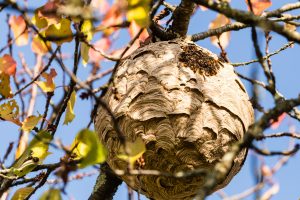
Vespa velutina secondary nest, with adult hornets huddled together warming up in the sun. Photo by YVO-Photos, Adobe Stock.
Remarkably, a single mated female has the potential to initiate a new colony. Primary nests, starting as small as a tennis ball, undergo significant expansion. Secondary nests, reaching heights of up to one meter and containing over 17,000 cells, are typically situated at altitudes of 60 to 70 feet, making them challenging to access. A single hornet nest has a voracious appetite, as it can consume up to 25 pounds of insect biomass in a single season, underscoring the ecological impact of yellow-legged hornet colonies.
As a predatory wasp, the yellow-legged hornet feeds on a variety of arthropods, displaying opportunistic behavior, including feeding on decaying animals. While the ecological impact is not fully understood, DNA in the gut of hornets shows that they feed on other wasps, bees, butterflies, moths, and spiders. However, honey bees, particularly Apis mellifera, are preferred targets, posing a significant threat to the beekeeping industry. Reports from Europe suggest that up to 30 percent of honey bee hives are weakened by attacks, with approximately five percent facing complete destruction.
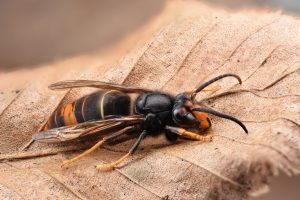
A male Vespa velutina, which exhibits longer, thicker antennae compared to females and, in line with all Hymenoptera males, lacks a stinger. Photo by Gilles San Martin, licensed under CC BY-SA 2.0.
Initially attracted to the honey bee hive by hive pheromones, yellow-legged hornets position themselves away from hive entrances, waiting for returning foragers, resulting in a “carpeting” of workers at the entrance. This term refers to the clustering or accumulation of honey bee workers near the hive entrance as they attempt to defend against the invading hornets. This behavior unfortunately leads to decreased colony production.
In response to this discovery, the UF/IFAS Honey Bee Research and Extension Laboratory is collaborating with the Florida Department of Agriculture and Consumer Services (FDACS) to disseminate information and efficiently handle reports of hornet sightings.
It’s essential to note that there are many domestic species, native to the United States, that closely resemble the invasive hornet but do not pose a threat to honey bees; in fact, many of them are valuable pollinators. The USDA has a photo gallery of these lookalikes, which can be accessed by visiting www.aphis.usda.gov and searching for ‘yellow-legged hornet.’
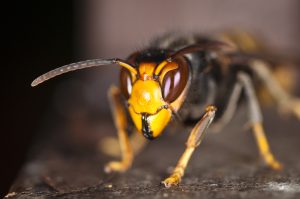
Vigilance from the public is crucial in minimizing the potential impact of Vespa velutina on honey bee populations in Florida and beyond. Photo by Danel Solabarrieta, licensed under CC BY-SA 2.0.
While the yellow-legged hornet can easily be confused with other hornets that are not problematic to honey bees, residents who believe they have identified Vespa velutina are encouraged to call the FDACS hotline at 1-888-397-1517.
If a sample is collected or a clear photo of the suspected hornet is available, please email dpihelpline@fdacs.gov along with location information to facilitate monitoring efforts. Vigilance and cooperation from the public are crucial in minimizing the potential impact of the yellow-legged hornet on honey bee populations in Florida and beyond.
For more information about the yellow-legged hornet, refer to the Vespa velutina UF/IFAS Featured Creatures fact sheet.
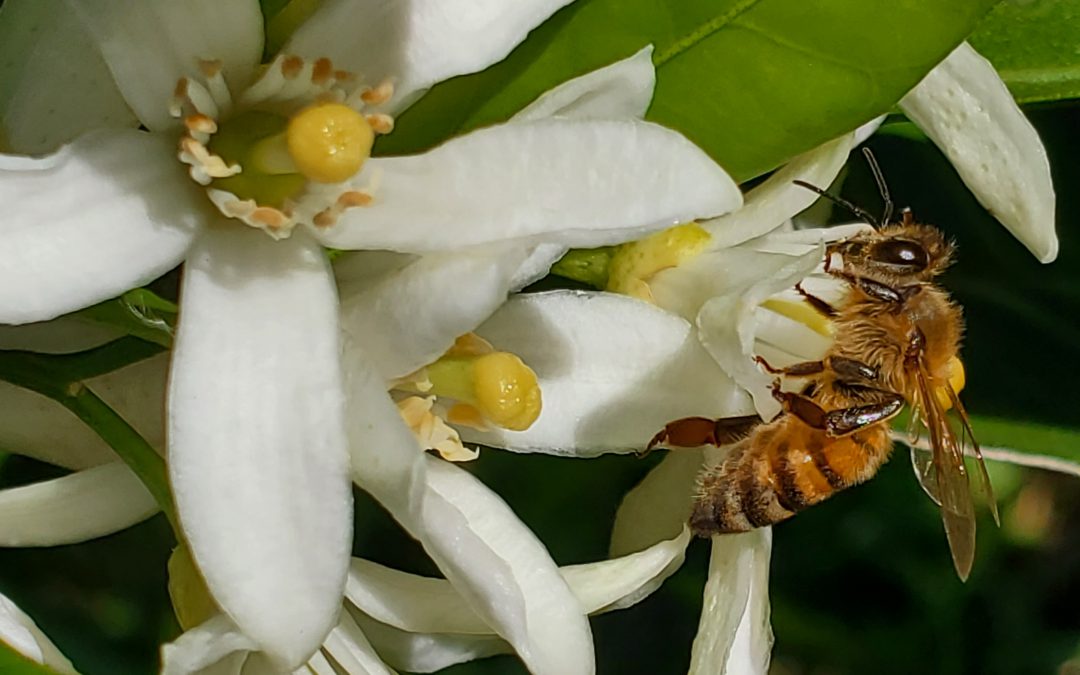
by Evan Anderson | May 18, 2022
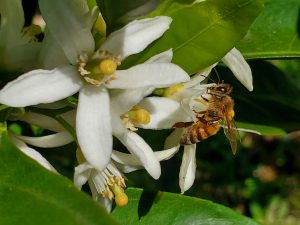 When people think of livestock, honeybees may not be the first thing that comes to mind. Bees are, however, a very significant part of agriculture. It is estimated that 30% of the crops we use for food are pollinated by honeybees. That’s around $15 billion of crops! On top of that, these hardworking insects also produce honey, wax, and other products that we can use.
When people think of livestock, honeybees may not be the first thing that comes to mind. Bees are, however, a very significant part of agriculture. It is estimated that 30% of the crops we use for food are pollinated by honeybees. That’s around $15 billion of crops! On top of that, these hardworking insects also produce honey, wax, and other products that we can use.
For those who want to get into the world of beekeeping, it can be a challenge to absorb all the information that’s out there. Thankfully, there are resources out there to assist. If you or someone you know are interested in apiculture, you might try:
Online resources. The University of Florida (UF) publishes research-based information in its EDIS publications. For topics relating to beekeeping specifically, you can go here: https://edis.ifas.ufl.edu/entity/topic/beekeeping. From there you can find links to specific publications, such as the Florida Beekeeping Management Calendar and much more. UF also has a Honey Bee Research and Extension Lab with online resources about their Master Beekeeper program and Bee College at https://entnemdept.ufl.edu/honey-bee/.
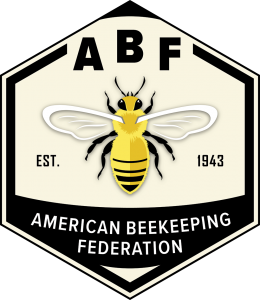 The American Beekeeping Federation maintains a website with tons of information on beekeeping at https://www.abfnet.org/. From there you can join the federation, find local groups, and find nationwide educational opportunities and resources for beekeepers.
The American Beekeeping Federation maintains a website with tons of information on beekeeping at https://www.abfnet.org/. From there you can join the federation, find local groups, and find nationwide educational opportunities and resources for beekeepers.
The Florida Department of Agriculture and Consumer Services (FDACS) requires beekeepers to register hives. You can find information on that here: https://www.fdacs.gov/Agriculture-Industry/Bees-Apiary/Apiary-Inspection. This site has a lot of extra information on beekeeping and links to other resources as well!
Local Resources. While digital sources of information can help, nothing can take the place of simply having other beekeepers to go to for answers. Local beekeeping organizations are a great place to start. Listed by county, here are some from across the panhandle:
As always, your local Extension office is available for help as well. Happy beekeeping!
by Ray Bodrey | Apr 28, 2022
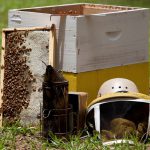 University of Florida IFAS Extension and the Beekeeping in the Panhandle Working Group have once again teamed up to offer the 9th Annual Beekeeping in the Panhandle Conference on Friday May 6th and Saturday May 7th 2022 at the Washington County Ag Center Auditorium.
University of Florida IFAS Extension and the Beekeeping in the Panhandle Working Group have once again teamed up to offer the 9th Annual Beekeeping in the Panhandle Conference on Friday May 6th and Saturday May 7th 2022 at the Washington County Ag Center Auditorium.
This year’s event will feature: Hands-on open hive experiences, presentations on the latest in research-based beekeeping management practices, interaction with expert beekeepers, vendors with beekeeping equipment, and hive products. Door prizes will be available as well!
The registration fee for the event will be $35 for one day or $55 for both days and $15 per day for youth 12 and under.
The activities will take place from 8:00 am – 5:00 pm Central Standard Time each day and will include a catered lunch.
Location: 1424 Jackson Avenue, Chipley, FL
Ways to register:
Registration link: https://www.eventbrite.com/e/9th-annual-beekeeping-in-the-panhandle-conference-trade-show-tickets-269199873067
Or drop by the Washington County Office at 1424 Jackson Avenue in Chipley.
For more information contact Washington County Extension Office at (850) 638-6180.












